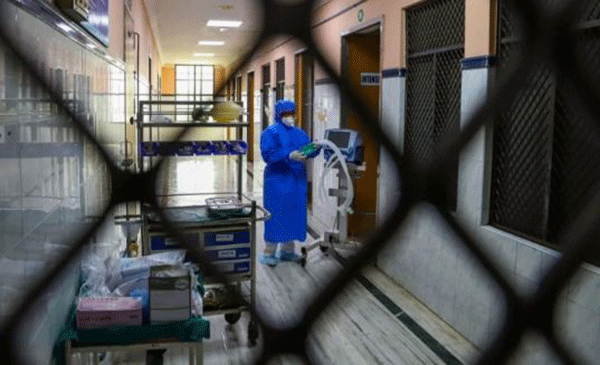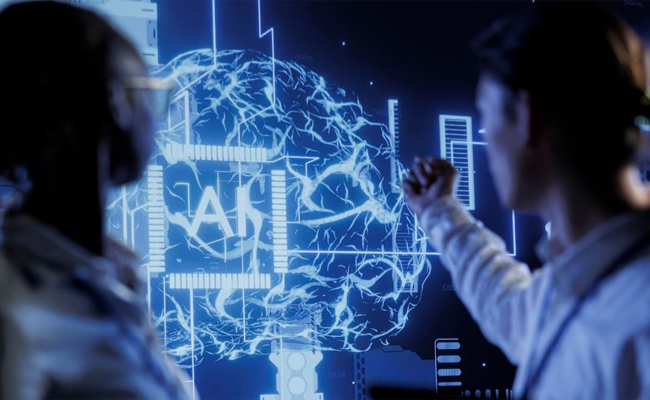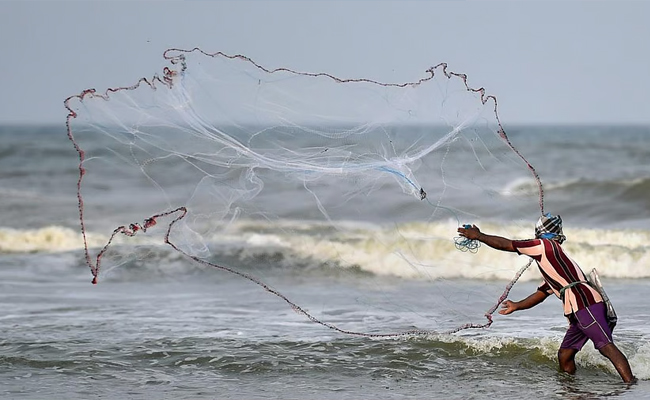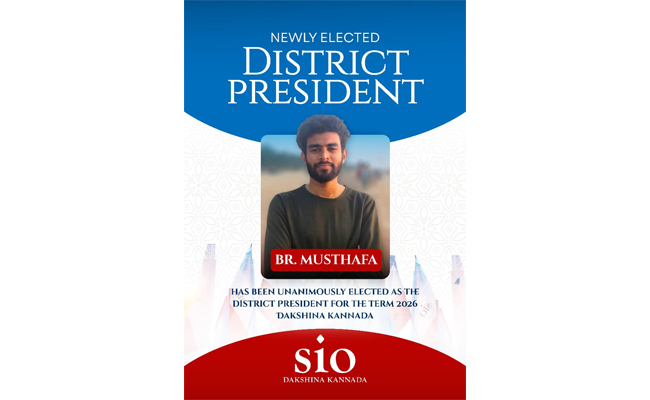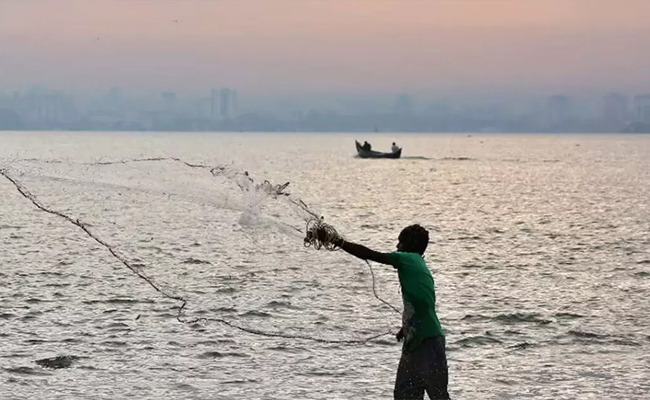New Delhi: Dispelling apprehensions that mild and moderate COVID-19 patients could transmit the disease if not tested before being discharged, the Union health ministry said available evidence does not indicate any increase in risk of the infection's transmission in such cases.
Such patients after being discharged will also follow home isolation for further seven days, the ministry said in its Frequently Asked Questions (FAQs) on the Revised Discharge Policy.
The ministry on May 9 issued the new discharge policy according to which coronavirus infected patients developing severe illness or having compromised immunity will have to test negative through RT-PCR test before they are discharged by a hospital.
For moderate cases of COVID-19 and pre-symptomatic, mild and very mild cases, it said, they need not undergo tests before being discharged after the resolution of symptoms.
"Available evidence does not indicate any increase in the risk of transmission from patients discharged based on the revised discharge criteria.The revised criterion also specifies that such patients will follow home isolation for a further seven days," the ministry said in reply to the FAQs.
Mild, very mild and pre-symptomatic patients admitted to a COVID care facility can be discharged after 10 days of symptom onset and no fever for three days, according to the policy.
Patients clinically classified as moderate cases will be discharged after 10 days of symptom onset in case of absence of fever without antipyretics, resolution of breathlessness and no oxygen requirement, it said.
But in the both the cases severe cases, and moderate, mild and pre-symptomatic cases-- the patient after being discharged will have to follow home isolation for further seven days, the policy said.
Responding to a question over why the discharge policy was changed, the ministry said several countries have changed the criteria for discharge from 'test-based strategy to 'symptom-based strategy' or 'time-based 'strategy.
"A review of ICMR laboratory surveillance data also indicated that after initial RT-PCR positive results, patients became negative after a median duration of 10 days," it said.
Recent studies have also suggested that the viral load peaks in the pre-symptomatic period two days before symptoms -- and goes down over the next seven days.
"Being cured of a disease may have different connotations for the general public, treating doctors and the virologists. Unless there is a fear of resurgence of the infection and subsequent transmissibility of an infection, resolution of clinical manifestation is usually taken as an evidence for cure," the ministry said.
Responding to a question over what precautions the patient should undertake during home isolation, it said the provision for home isolation of pre-symptomatic, very mild, mild confirmed cases of COVID-19 has been made, provided that such patients are assessed to be eligible for the same in terms of their clinical status and feasibility to successfully isolate in home environment settings .
This should be done after signing a self-declaration form by the patient, it said.
Such patients, with no co-morbidities, should at all times use triple layered medical masks, the ministry said.
Patient must stay in the identified room and away from other people at home, especially elderlies and those with co-morbid conditions like hypertension, cardiovascular disease and renal disease, it said.
They should maintain strict personal hygiene and self-monitor their health with daily temperature monitoring and report promptly if they develop any deterioration of symptom, it said in the FAQs.
Over the need to get tested after the home isolation period is over, the ministry said as per the latest revised discharge policy, there is no need for testing prior to discharge of all pre-symptomatic, very mild or mild confirmed cases of COVID-19 after 10 days of symptom onset and no fever for three days.
"Therefore it stands to reason, that no testing is also needed for patients undergoing home isolation (pre-symptomatic/very mild/mild confirmed cases) after the home isolation period is over," it said.
The earlier criteria for discharging RT- PCR positive were chest radiograph has cleared and two consecutive negative test results on RT-PCR, the ministry stated.
The death toll due to COVID-19 rose to 2,206 and the number of cases climbed to 67,152 on Monday, according to Health Ministry.
Let the Truth be known. If you read VB and like VB, please be a VB Supporter and Help us deliver the Truth to one and all.
Bengaluru: Artificial Intelligence is slowly changing the way music and creativity are produced in the Kannada film industry, raising concerns among musicians, singers and technicians, The New Indian Express reported on Sunday.
Music composer, actor and director V Manohar reportedly said, AI is being used to write lyrics, especially in low-budget movies. Once lyrics are generated, AI can suggest thousands of tunes. It even asks whether the voice should be male or female. With one click, a complete song is ready.
“If this continues, singers and musicians will have less or no work in the coming days. But it may not succeed either. A few years ago, dubbing was allowed and people could watch movies in any language they preferred. But not many took to it as they wanted to watch a movie in the original,” TNIE quoted him as saying.
According to the report, Filmmaker Avinash U Shetty, a National Award winner, said resistance to new technology is not new. Those who resisted shifting from analogue to digital films years ago have now embraced it. The industry is now using only 10% of the AI potential. If it is scaled up, it can do unimaginable things. What we consider bad now, may not be after five years.
Highlighting the cost advantage, Sangamesh, an independent creator reportedly said, he made a three-minute video using AI for just Rs 4,500. Earlier, the same work would have cost nearly Rs 15 lakh. I finished the entire project in three days. The only expense was the AI software subscription, he said.
These days, it has become difficult to differentiate between the real and AI. AI is creating artistes. Scenes like war, big fights and dance can be shot with a lesser number of artistes. Then with the aid of visual effects and AI, you can achieve what you have in mind, he said.
Actor-director D P Raghuram felt that while AI has made an impact on music, it lacks emotional depth. Cinema earlier involved hard work and strong emotional connections. AI can help improve our work, but creativity should remain human, he reportedly said.
As per the report, earlier, Kannada cinema employed hundreds of junior artistes, who not only earned wages but also shared meals on sets and formed lasting bonds with stars like Dr Rajkumar, Vishnuvardhan and Ambareesh. Today, filmmakers fear that increasing dependence on AI could reduce such human connections, turning creativity into just another automated process.

